Emphasis Programs & Options
Emphasis Programs
The Psychology program has 3 emphasis programs to enhance the psychology degree. Once completed, these emphases will not be included on the student's transcript, but they will receive a certificate.
- Emphasis in Addictions Counseling
This emphasis helps prepare you to become a Certified Associate Counselor – Alcohol and Drug in the state of Maryland. This emphasis program provides the educational requirements set forth by the Maryland Board of Professional Counselors and Therapists. Open to Psychology and Social Work majors.
View the complete description of requirements. For more information, contact Dr. Nicole Andrews. - Emphasis in Child and Family Psychology
Designed for students who want an in-depth exposure to child/adolescent psychological development and disorders.
View the summary of requirements. For more information, contact Dr. Kimberly James. - Emphasis in Counseling
Prepares students for graduate programs in counseling or related fields. Courses include communication skills, theory, abnormal behavior, and cultural influences on human problems. Students completing this emphasis will not be license-eligible but will be prepared for further study.
View the summary of requirements. For more information, contact Dr. Nicole Andrews.
The Internship Option
The Psychology Department also offers an internship option in addition to the requirements of the major. It is possible to complete the major with a combination of emphasis programs and internship.
This option is for students interested in psychology-related careers at the bachelor's level. It includes individually designed internships in addition to the core program.
View the summary of requirements.
For more information, contact Dr. Jennifer Flinn.
Student Activities - Research
Students can participate in research labs run by Psychology faculty. In 2025, at the Undergraduate Research Symposium, Dr. Kathleen Jocoy’s students presented their work.
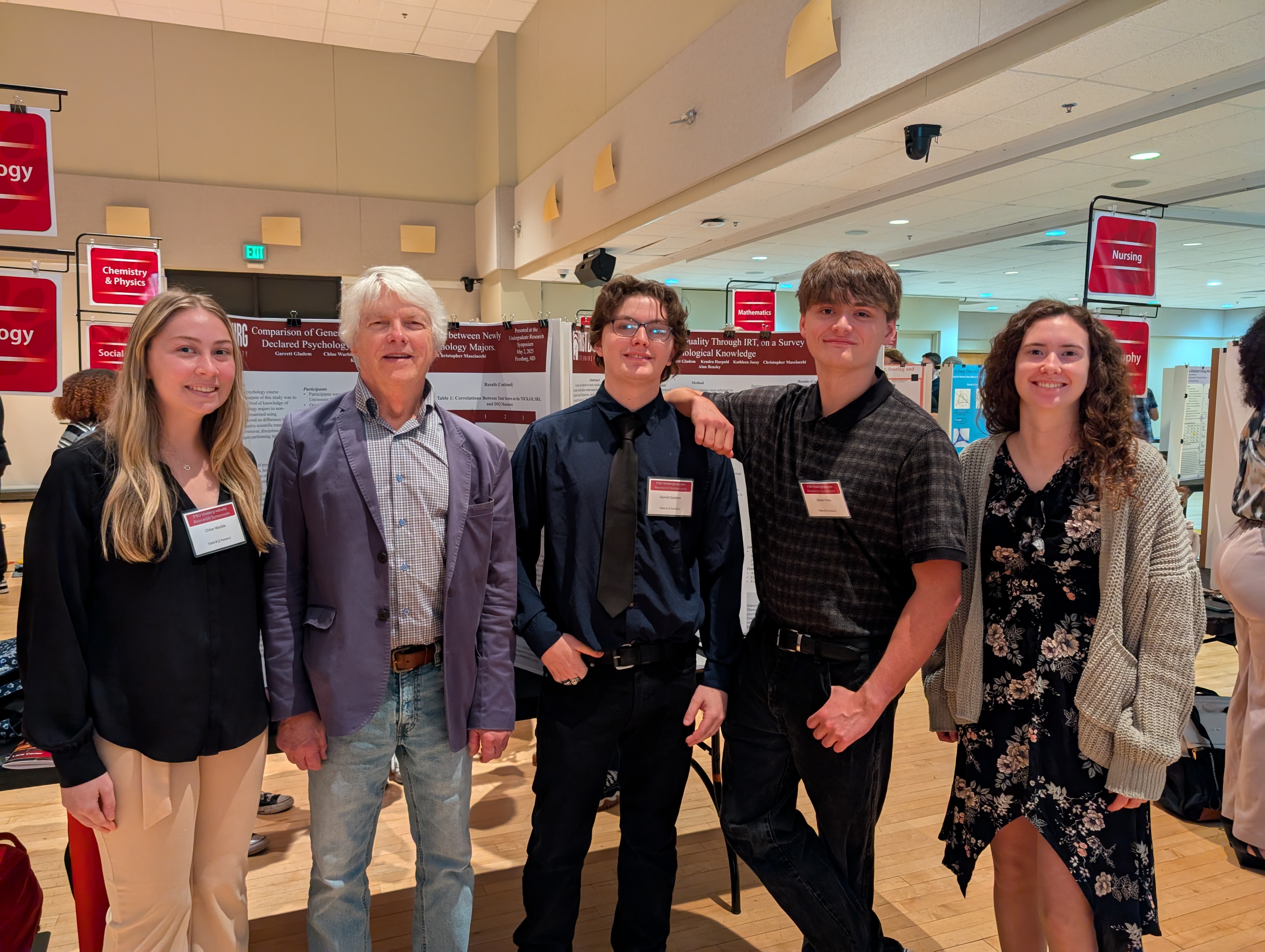 Pictured: Chloe Warble, Emeritus Faculty Dr. Alan Bensley, Garrett Gladem, Dan Palus, and Karleigh O'Donnell.
Pictured: Chloe Warble, Emeritus Faculty Dr. Alan Bensley, Garrett Gladem, Dan Palus, and Karleigh O'Donnell.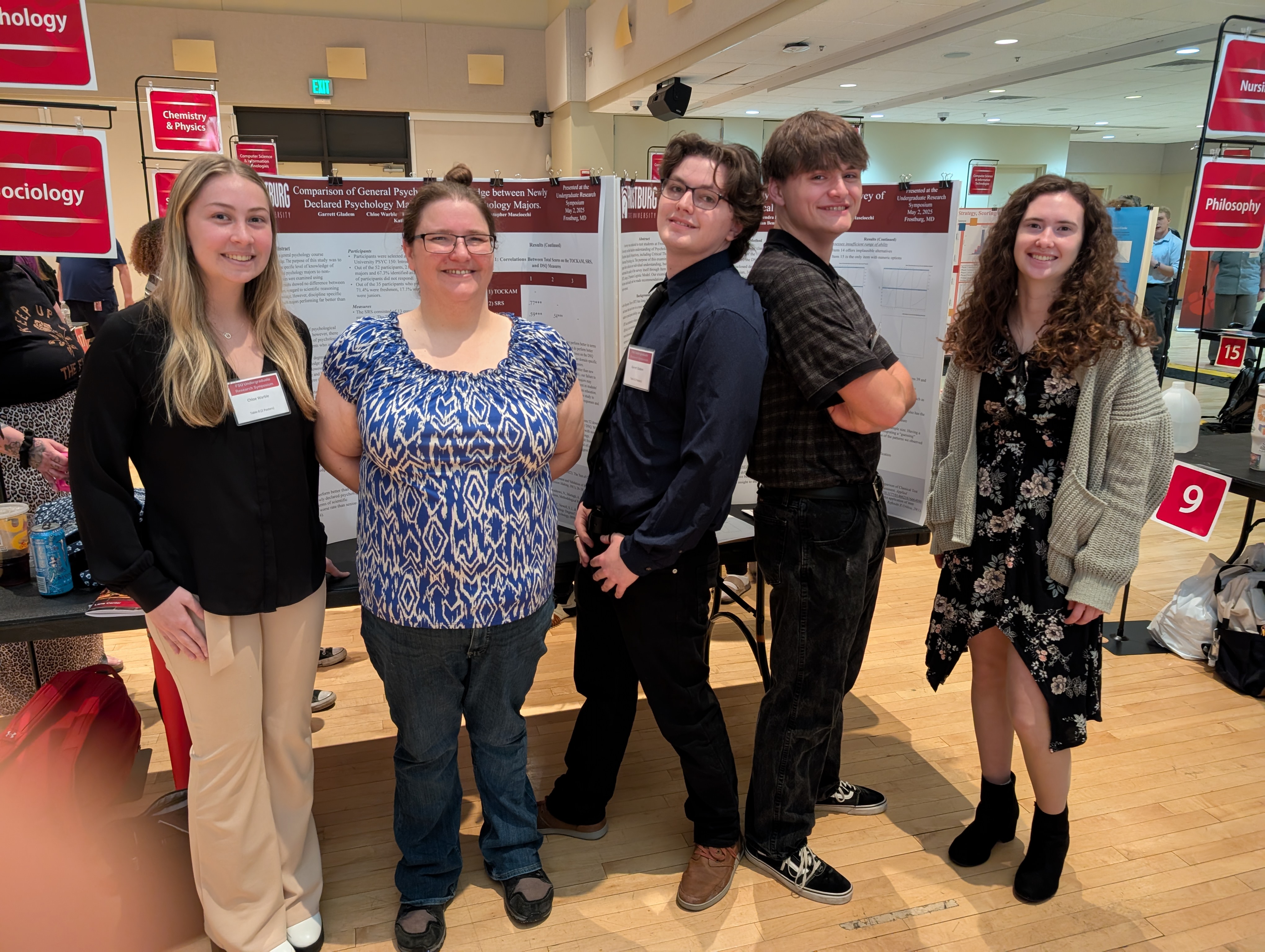 Pictured: Chloe Warble, Dr. Kathleen Jocoy, Garrett Gladem, Dan Palus, and Karleigh O'Donnell.
Pictured: Chloe Warble, Dr. Kathleen Jocoy, Garrett Gladem, Dan Palus, and Karleigh O'Donnell.In 2019, undergraduate and graduate students presented research at the Association for Psychological Sciences conference in Washington D.C., under the mentorship of Dr. Alan Bensley and other faculty.
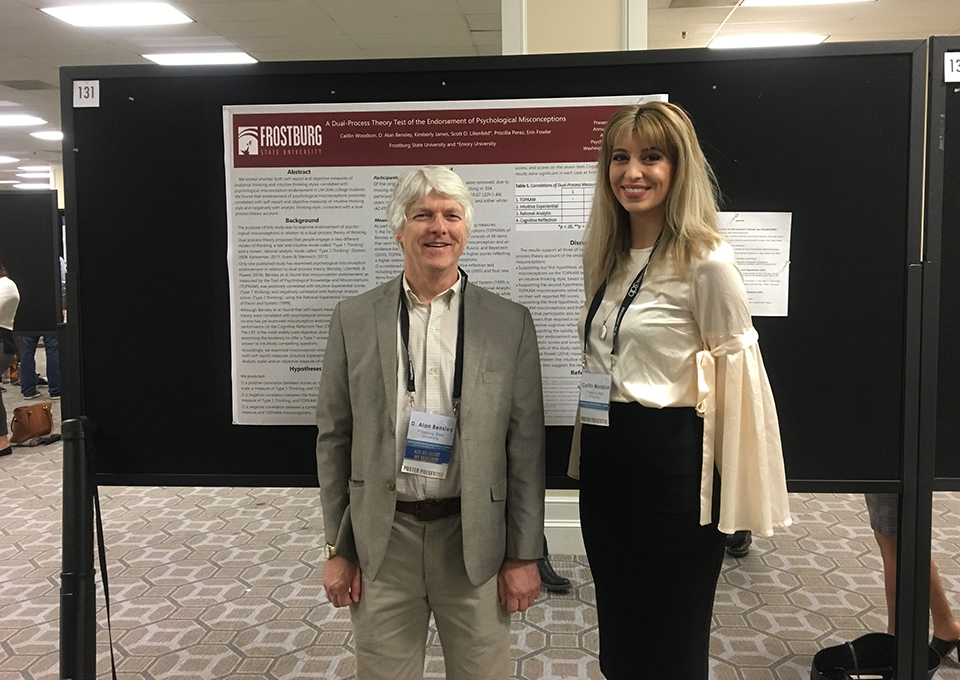 Dr. Alan Bensley and Caitlin Woodson, the Psychology department's 2019 honors award recipient.
Dr. Alan Bensley and Caitlin Woodson, the Psychology department's 2019 honors award recipient.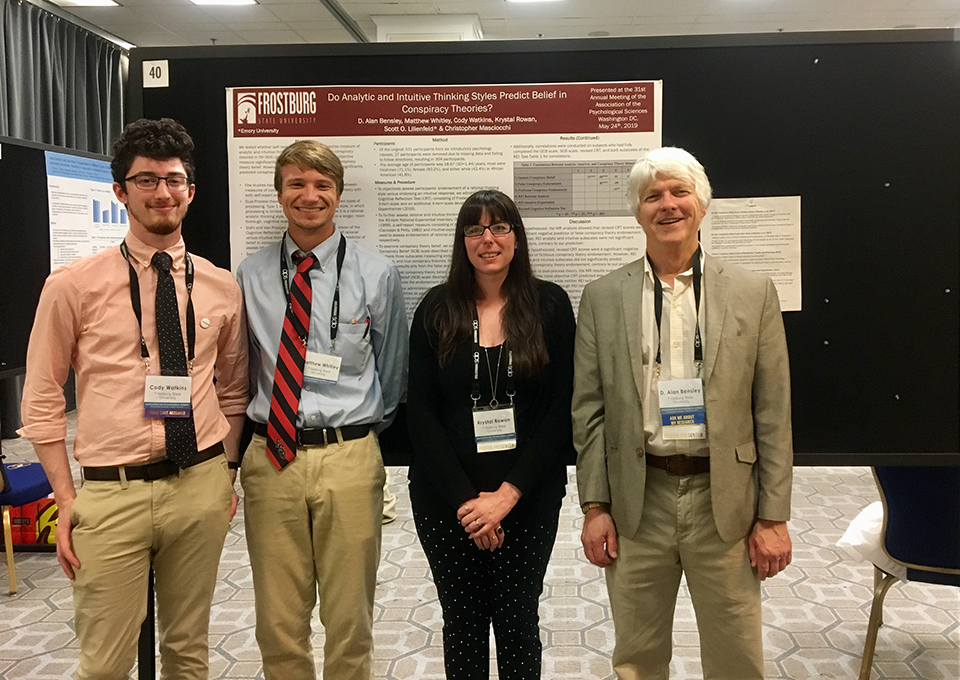 Cody Watkins, Matthew Whitley, Krystal Rowan, and Dr. Alan Bensley.
Cody Watkins, Matthew Whitley, Krystal Rowan, and Dr. Alan Bensley.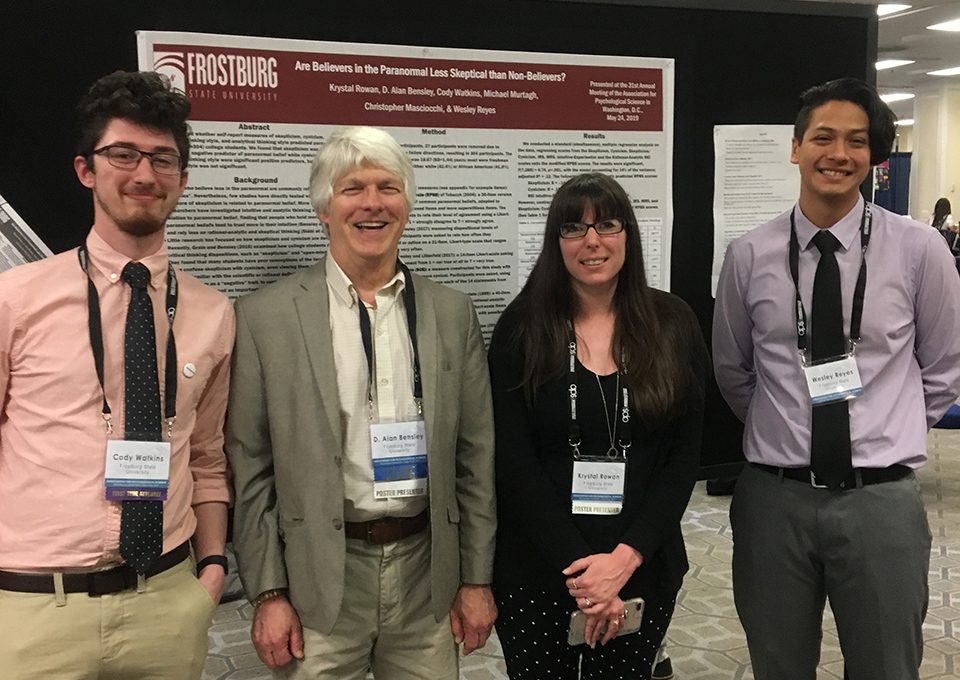 Cody Watkins, Dr. Alan Bensley, Krystal Rowan, and Wesley Reyes.
Cody Watkins, Dr. Alan Bensley, Krystal Rowan, and Wesley Reyes.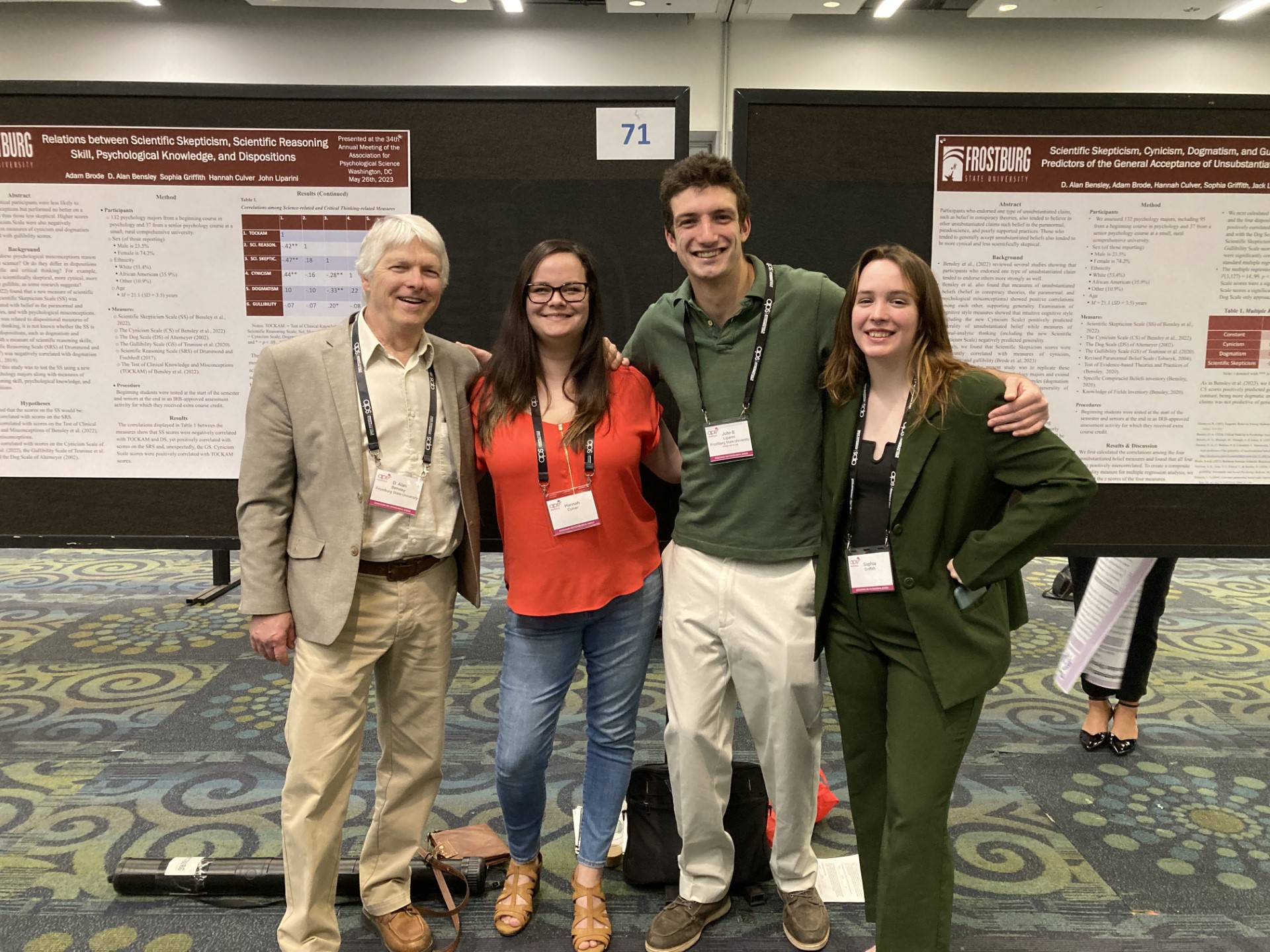 Dr. Alan Bensley, Hannah Culver, John Liparini, and Sophia Griffith presenting at APS in Washington D.C. in 2023.
Dr. Alan Bensley, Hannah Culver, John Liparini, and Sophia Griffith presenting at APS in Washington D.C. in 2023.